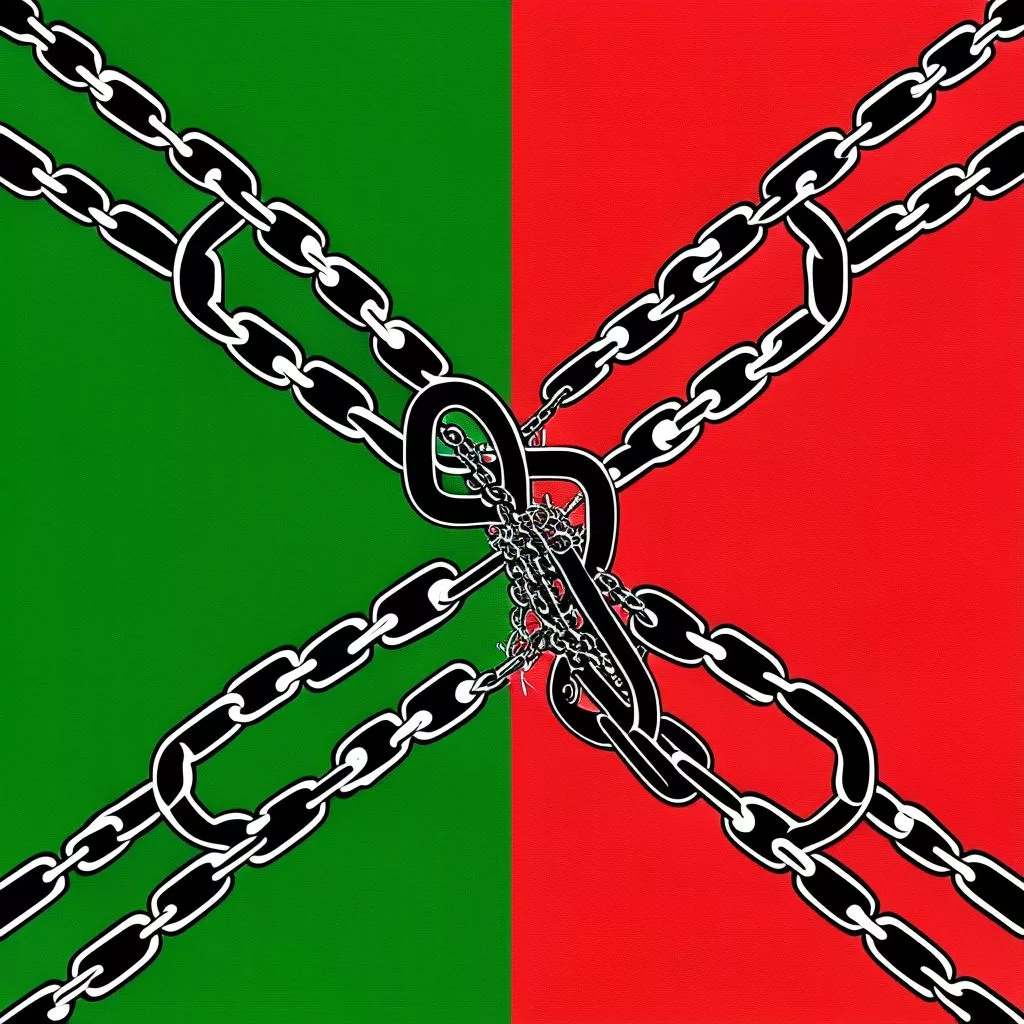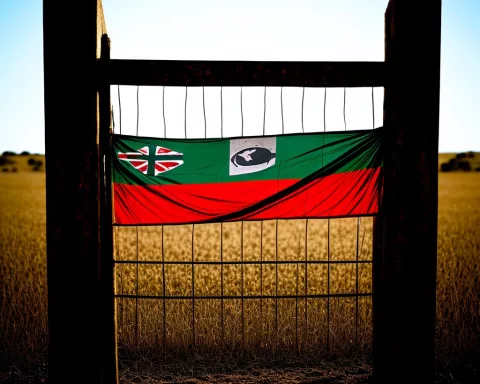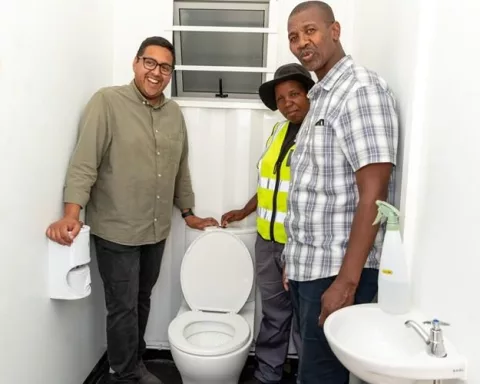The Government of National Unity (GNU) in South Africa is facing tough times as it struggles to agree on a budget. The African National Congress (ANC) and the Democratic Alliance (DA) are at odds over important issues like power-sharing and economic reforms. While the DA is pushing for changes to boost the economy, smaller parties are complicating the negotiations. This shaky alliance highlights the challenges of working together in a diverse political landscape, where respect and collaboration are crucial for moving forward.
What challenges does the Government of National Unity face in South Africa?
The Government of National Unity (GNU) in South Africa is grappling with instability due to unresolved budget negotiations between the ANC and DA. Key challenges include power-sharing disputes, economic reform disagreements, and external influences from smaller parties, threatening the coalition’s effectiveness and future.
The Government of National Unity (GNU) in South Africa finds itself at a critical juncture as a crucial budget agreement between the African National Congress (ANC) and the Democratic Alliance (DA) appears to have unraveled. While debates over a Value-Added Tax (VAT) increase have stolen the spotlight, underlying issues reveal deeper fissures within the coalition. The negotiations between the ANC and DA were initially seen as a hopeful sign of collaboration, but political strategizing and external pressures have complicated this process.
The Breakdown of Negotiations
The DA had tentatively agreed to a short-term 0.5% VAT increase, but not without imposing stringent conditions aimed at economic rejuvenation and fiscal responsibility. The deadlock wasn’t merely about the VAT hike but about the ANC’s readiness to genuinely share power within the GNU framework. Insiders suggest that discussions were making positive strides until smaller parties like ActionSA offered the ANC an alternative path for budgetary support. This strategic intervention disrupted the delicate balance of negotiations and significantly weakened the DA’s bargaining power.
The DA’s support for the budget hinged on several key reforms aimed at accelerating economic growth and ensuring fiscal stability. Their proposals included a comprehensive spending review aimed at identifying substantial recurring savings and a commitment to gradually reduce the tax burden over the next two years. These conditions highlight the DA’s focus on economic revitalization as a cornerstone of their governing strategy.
Proposed Economic Reforms
The draft agreement laid out by the DA proposed sweeping reforms across vital sectors. Emphasis was placed on increasing private sector involvement in ports and railways, introducing new passenger rail concessions, and restructuring the energy sector. One of the key elements was the push for independent Transmission Projects to enhance grid capacity, along with a transformative digital upgrade of governmental services. This forward-thinking approach highlights the DA’s strategy to navigate fiscal challenges effectively.
One central pillar of the DA’s deal was a thorough review of government spending, aimed at either curtailing underperforming programs or enhancing their efficiency. Proposals such as conducting a nationwide audit of ‘ghost’ employees and selling or consolidating non-strategic public assets were seen as essential steps toward fiscal responsibility. These measures resonated with public calls for greater transparency and accountability, reflecting the DA’s commitment to these values.
Political Maneuvering and Historical Context
The collapse of these negotiations underscores the complicated nature of coalition governance in South Africa. The initial promise of the GNU as a unified front for national progress now faces significant obstacles, as internal divisions and strategic shifts threaten its stability. Historically, South African politics has always been a landscape of complex alliances and power dynamics. Transitioning from apartheid to a democratic society required intricate negotiations and compromises, many of which set the stage for the current political framework. Forming the GNU was a significant step toward inclusivity, but maintaining such an alliance demands more than shared governance; it requires mutual respect and genuine collaboration.
Artistic and cultural movements in South Africa have often mirrored the country’s political evolution. During the apartheid era, artists and writers used their work to challenge the status quo and envision a more inclusive society. Today, the political theatre reflects similar tensions and aspirations, with parties like the DA advocating for reforms that address broader societal needs for transparency, accountability, and economic progress.
Aligning with Global Trends
The DA’s proposed reforms in the energy and transport sectors align with global trends toward privatization and public-private partnerships. These approaches aim to harness private sector efficiency and innovation to improve public services. However, such reforms require careful implementation and oversight to ensure they serve the public interest and do not exacerbate existing inequalities.
The DA’s focus on digital upgrades of governmental services signals an acknowledgment of the transformative potential of technology. Implementing digital governance can enhance efficiency, reduce corruption, and improve service delivery, aligning with global best practices. However, this transition demands substantial investment in infrastructure and capacity building, underscoring the complexities of implementing such reforms in a resource-constrained environment.
The Path Forward
The narrative of South African politics is one of resilience and transformation. From the struggle against apartheid to the challenges of building a democratic and inclusive society, the country has shown a remarkable ability to navigate adversity. The current impasse within the GNU reflects ongoing struggles for power and influence, but it also highlights the potential for innovative solutions and reforms.
The fragile alliance within the GNU showcases the complexities and challenges of coalition governance in South Africa. The ANC and DA’s negotiations, influenced by external parties and internal dynamics, reveal the need for genuine collaboration and mutual respect. The proposed reforms aimed at economic revitalization and fiscal stability mirror broader societal aspirations for change and accountability. As South African politics continues to evolve, the lessons from these negotiations will undoubtedly shape the country’s future trajectory in governance and development.
“`markdown
FAQ: The Government of National Unity’s Struggle for Stability
What is the Government of National Unity (GNU) in South Africa?
The Government of National Unity (GNU) is a coalition government formed in South Africa, primarily comprising the African National Congress (ANC) and the Democratic Alliance (DA). It aims to foster collaboration and inclusivity in governance, as well as to address pressing national issues. However, the GNU currently faces significant challenges in achieving stability and effective governance.
What are the main challenges facing the GNU?
The GNU is currently struggling with unresolved budget negotiations between the ANC and DA. Key challenges include disputes over power-sharing, disagreements on economic reforms, and external influences from smaller parties, which threaten the coalition’s effectiveness and future stability.
What specific issues are causing the budget negotiations to break down?
The breakdown of negotiations is primarily related to the ANC’s willingness to genuinely share power within the GNU. Although the DA had tentatively agreed to a short-term VAT increase, they imposed strict conditions aimed at promoting fiscal responsibility and economic growth, which the ANC has been reluctant to fully endorse.
What economic reforms has the DA proposed?
The DA has proposed a range of economic reforms, including increasing private sector involvement in key areas like transport and energy, conducting a comprehensive spending review, and implementing measures to reduce the tax burden. They also advocate for independent Transmission Projects and digital upgrades for governmental services to enhance efficiency and accountability.
How do the current negotiations reflect the historical context of South African politics?
The current situation mirrors the complex nature of coalition governance in South Africa, rooted in historical negotiations that transitioned the country from apartheid to democracy. The formation of the GNU was a step toward inclusivity; however, maintaining such alliances requires ongoing mutual respect and collaboration, which are currently being tested.
What does the future hold for the GNU and South African politics?
The future of the GNU hinges on the ability of its members to navigate their differences and forge a path toward genuine collaboration. The ongoing challenges reflect broader societal aspirations for transparency, accountability, and economic progress. The lessons learned from these negotiations will play a crucial role in shaping South Africa’s governance and development trajectory moving forward.
“`












